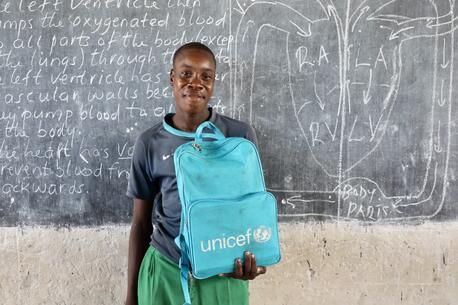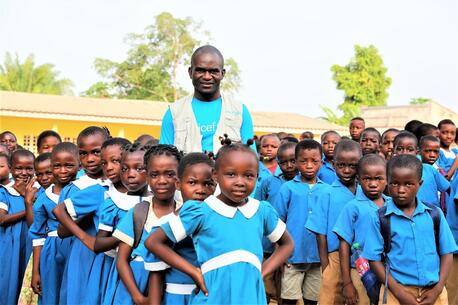
UNICEF in Cameroon
With violent conflict in three separate regions, large numbers of refugees and internally displaced people, and seasonal flooding and drought exacerbated by climate change, Cameroon poses unique challenges for both its people and those trying to help. Find out what UNICEF is doing to improve conditions for children in Cameroon.
A daunting set of humanitarian crises in Cameroon
Even in strife-torn Equatorial Africa, where so many countries face ongoing conflict, the situation in Cameroon is exceptionally difficult. Three separate regions are plagued by three separate sets of intractable conflict and instability.
In the Lake Chad Basin in Cameroon’s Far North region, where four countries come together, already difficult conditions were made much worse in 2014, when civil strife spilled across the border from northeast Nigeria into Cameroon, Chad and Niger. Persistent fighting between government militaries and non-state armed groups has created a humanitarian crisis, endangering 17 million people across the region and displacing more than 2.5 million.
Random attacks on civilians have terrorized local populations, making it even more difficult to maintain a stable home.
Since 2017, separatists in the North-West and South-West regions of the country have waged a war of insurgency against the government, killing thousands and displacing more than half a million people.
Cameroon’s eastern regions have been flooded with refugees from neighboring Central African Republic since violence broke out there in 2013. As many as 350,000 have crossed into Cameroon, badly overtaxing limited resources and services, and compounding problems of food insecurity, disease and violence for host communities.
Climate change impacts are compounding existing hardships. In 2023, heavy rainfall caused massive flooding and landslides in the South-West region. UNICEF provided water, sanitation and hygiene (WASH) support for more than 35,000 people and trained community health workers there in adjusting social behaviors to prevent the spread of cholera.
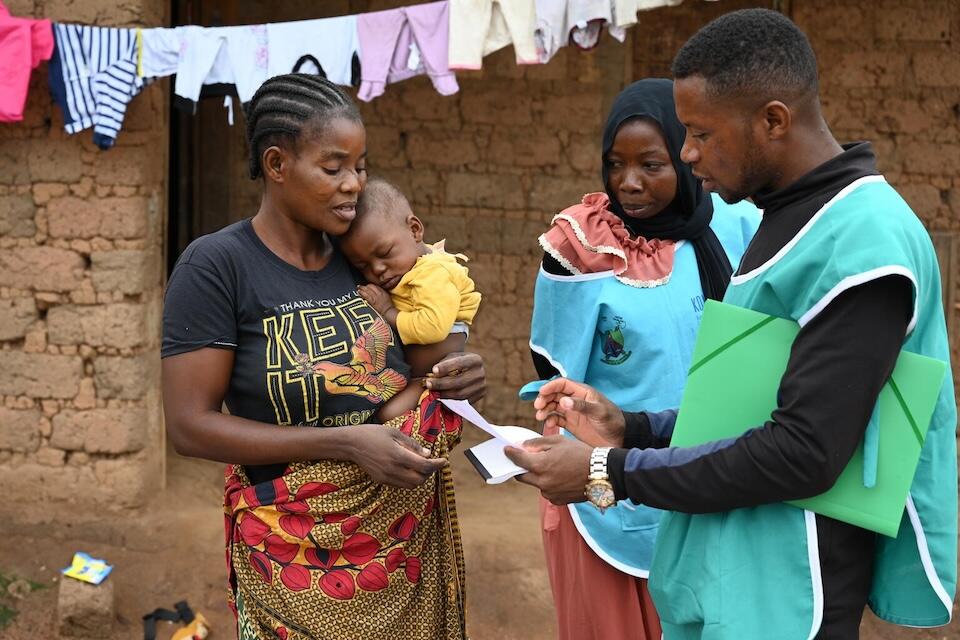
Disease outbreaks, learning poverty and a lack of adequate sanitation
Ongoing conflict and instability in so much of the country has affected Cameroon’s children worst of all — igniting outbreaks of disease, disrupting agriculture and food sources, exposing them to violence and exploitation, and making consistent schooling all but impossible.
When last assessed in 2014, only 18 percent of Cameroon's population had adequate sanitation facilities. A majority of schools lack safe drinking water or adequate latrines.
Cameroon has as many as 6 million cases of malaria per year, with 4,000 deaths — 70 percent of them children — and in 2023, the country experienced multiple outbreaks of cholera, polio, monkeypox and measles.
Only 2 in 10 learners are proficient at reading — fewer in the hardest-hit regions, including the Far North. Girls lag far behind boys in education outcomes.
Almost half of Cameroon’s children live in poverty, and roughly one-third have suffered physical violence.
What UNICEF is doing to help children in Cameroon
Despite the complex and difficult working conditions in Cameroon, UNICEF continues to improve the lives of children and families there.
Because of the constant danger that looms in so many regions of the country, UNICEF Cameroon has worked to integrate its child protection efforts with those for improving educational opportunity.
Even in the Far North, North-West and South-West regions — the most heavily affected by violence, and where clashes between state security forces and non-state armed groups sometimes threaten students, teachers and the schools they depend on — UNICEF has supported access to education and supplied school materials to several hundred thousand children.
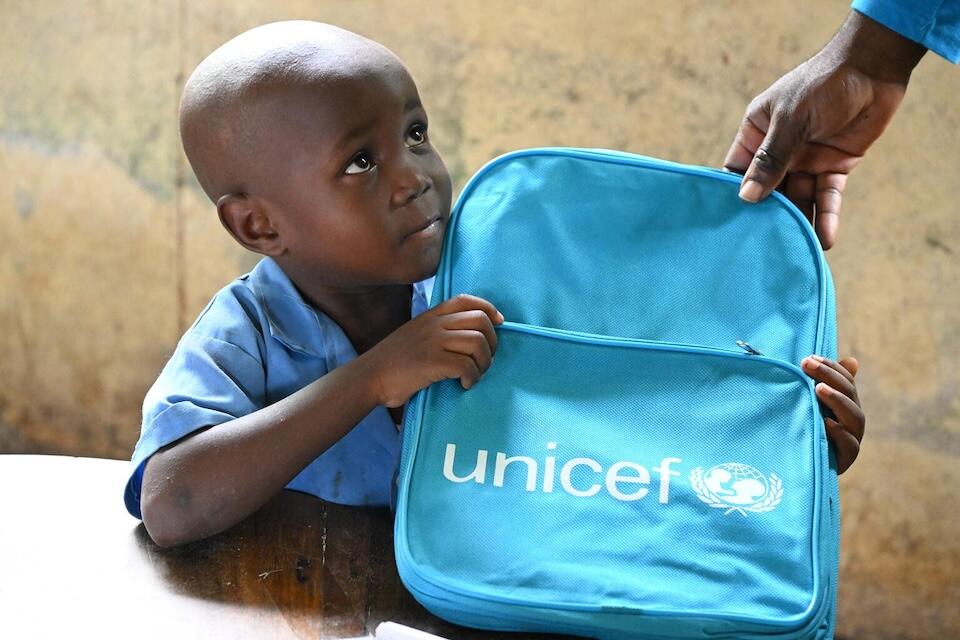
Protecting children and getting them in school
In cooperation with the government, UNICEF has aided the implementation of a protocol for releasing and reintegrating thousands of children formerly associated with armed groups.
UNICEF has also worked to apply the Safe School Declaration, helping to reduce violent attacks on schools and protect children and teachers. Efforts to make learning environments safer has helped increased retention rates, while lowering student exposure to violence and reducing child marriage and teenage pregnancy.
UNICEF trains teachers in Cameroon to offer guidance and psychosocial support to traumatized children, addressing violence, exploitation and abuse, including harmful practices such as gender-based violence and child marriage.
Working with the government and a consortium of NGOs, UNICEF also set up a program that led to the recruitment of 3,000 primary school teachers, benefitting 180,000 students. The program's special focus on out-of-school children helped get 100,000 children back to learning — many of them through distance-learning solutions, including schooling-by-radio programs for kids in remote areas.
To strengthen programs for adolescents, UNICEF Cameroon developed a strategy that includes consulting students with diverse backgrounds on ways to keep teens in school.
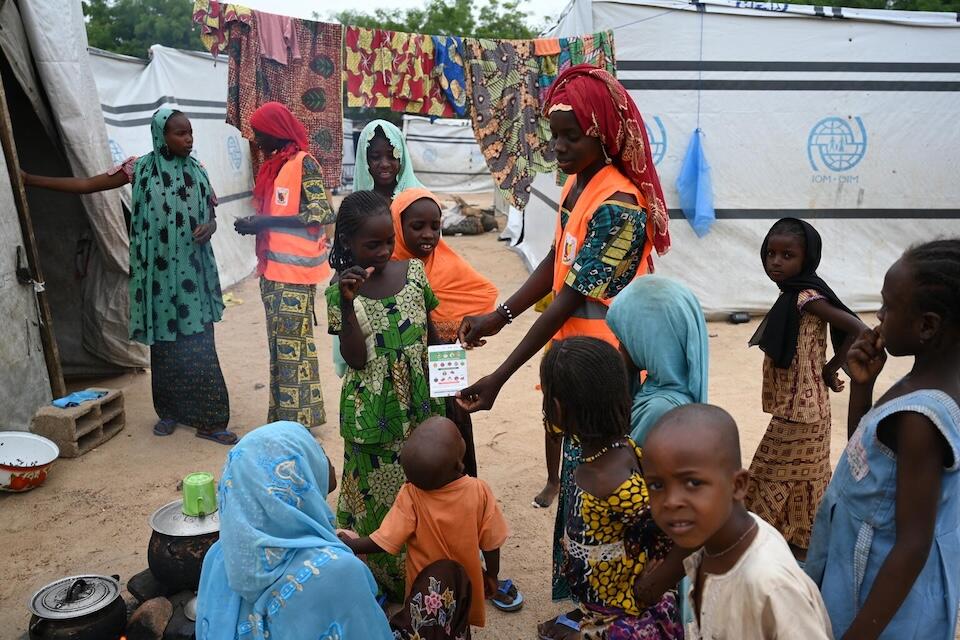
A “My Green School” initiative developed in cooperation with the government is educating students on environmental issues and sustainable development. Students learn about protecting nature and have opportunities to get involved in tree planting and other projects.
In eastern Cameroon, UNICEF has helped students return to school through a combination of community engagement, cash support for families in need, and provision of desperately needed school supplies.
Caring for children's health and well-being
The UNICEF Cameroon country office focuses on three priorities for improving and sustaining the health of the country’s children: nutrition, immunization and birth registration.
UNICEF has gradually shifted from addressing symptoms of child wasting to responding to root causes of malnutrition, by:
- widely distributing Vitamin A supplements
- providing micronutrient powders, which mothers can use to enrich home-cooked meals
- educating caregivers on positive feeding practices
- training caregivers to detect early signs of malnutrition
To inform and improve the response to cases of severe wasting, UNICEF conducts comprehensive nutritional assessments alongside Cameroon’s Ministry of Agriculture and Rural Development.
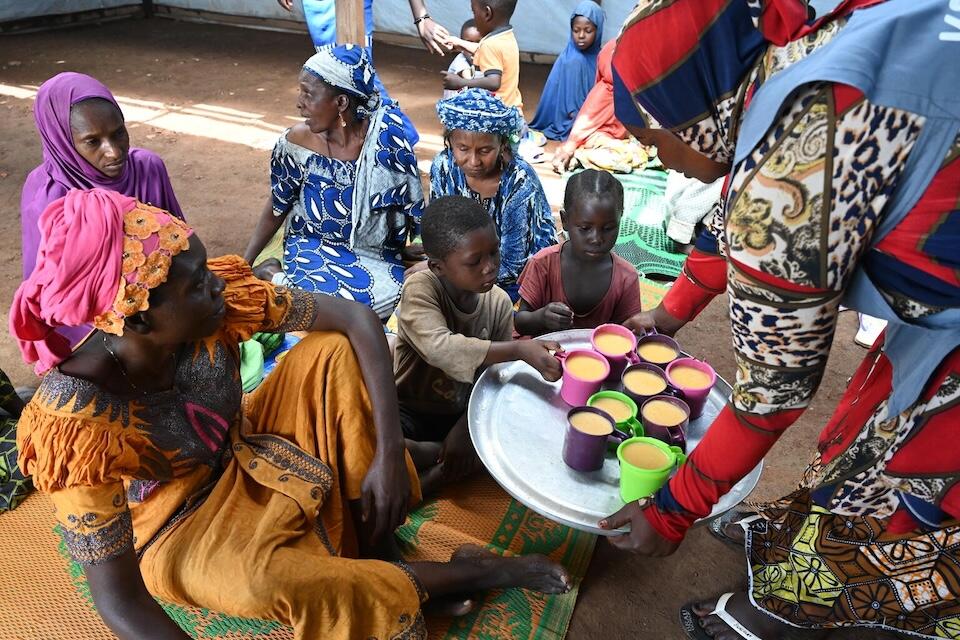
UNICEF continues to refine its immunization program in Cameroon by:
- supporting national vaccination campaigns — including a highly effective supplemental campaign following a major measles outbreak in 2023
- integrating the new malaria vaccine into routine vaccinations
- instituting a comprehensive hot-spot mapping program to identify and reach children who might otherwise miss out
These and other efforts helped Cameroon increase overall immunization coverage among children from 76 percent in 2020 to over 82 percent in 2023.
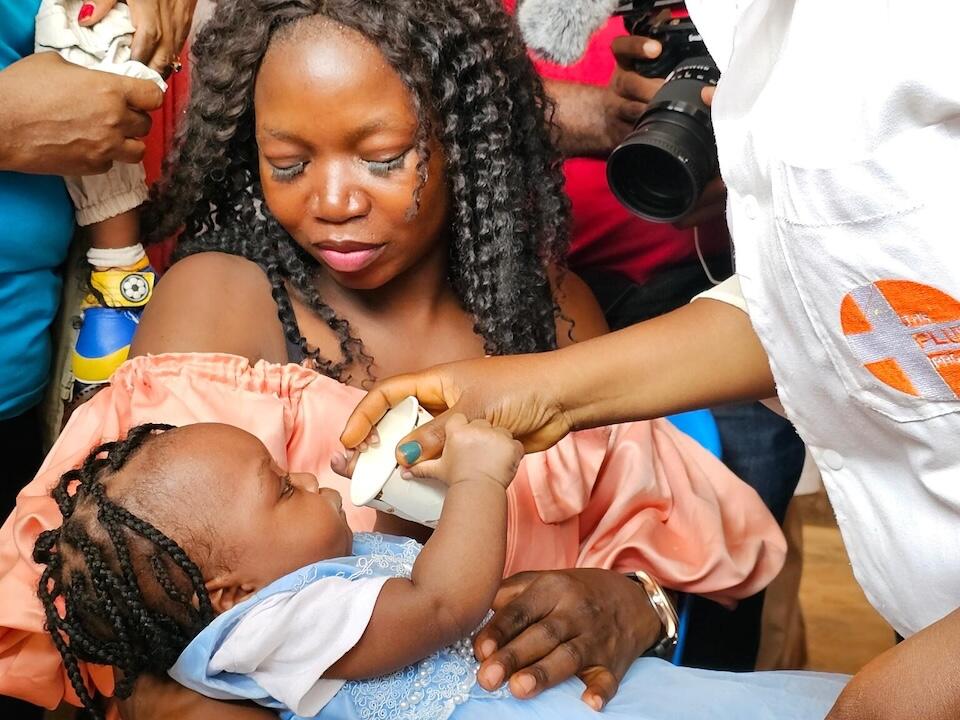
All of this work in prevention, assessment and treatment is underpinned by UNICEF’s project for implementing a system of birth registration that will reach every newborn in Cameroon — and greatly facilitate monitoring, immunization and access to services including education.
Conditions in Cameroon are among the hardest in the world, but with donor support, UNICEF is making a difference for children and families.
You can help. Unrestricted donations help UNICEF respond quickly as crises occur. Help increase UNICEF's impact for children. Donate today.
UNICEF works in over 190 countries and territories to create a more equitable world where every child can be healthy, educated, protected and respected. Learn more.


